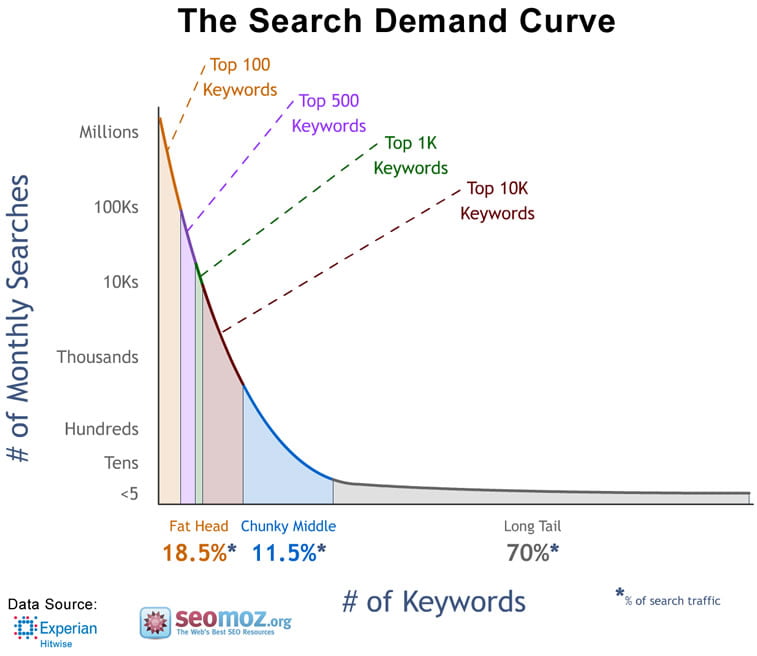What fuels SEO engines? This is probably the first question all SEO experts (to be) come across with when they start doing SEO research.
Heck, this was the first thing (or Wall) I had to deal with when I started doing this job. And the answer kept following me everywhere. It is so obvious that nobody can miss it: keywords.
In order to rank well on search engines and obtain high positions on SERPs, a site needs to build links for keywords they compete with other sites. Nevertheless, and as opposed to the general opinion, sites do not come hand in hand with keywords attached. There is a lot of digging (i.e. research) that needs to be done.
What is ’Keyword Research’?
Imagine the world wide web as a language system. Just like any language, the web has its syntax, semantics, and other grammar rules that need to be followed in order to be understood correctly and to communicate your message (read more about W3C’s Semantic Web concept on Wikipedia). The basic SEO (language) unit is called a keyword.
Keyword in SEO is a term, phrase or word a site competes for in order to rank better on the preferred SERP. Keywords contain subject information that connects their content with other relevant strings of content in a search index.
Keywords can be found in the process of keyword research.
Keyword research is an SEO practice used for finding or discovering words, terms and key phrases that people type into the search engine while gathering information about a certain topic. The objective of this research is to find optimum (the most relevant) keywords, however – when the competition for a keyword is gigantic (such as for ’web design’ etc.), it would be best to find keywords with little competition and rank better in search engines to attract more web traffic.

Keyword exploration is a standard procedure in the discovery process and the need for it has not changed much in the past couple of years. However, what has changed is the way we search terms and phrases.
The Research Process:
1. Pre-research of topics
Pre-research is at the very core of this methodology. In order to be able to look for anything on a given topic, you need to be educated, or even better, well informed about it. Keywords cannot be generated as they cross your mind – in order to be able to compete for a keyword, you need to know it, and this can be achieved only if you know the mind of your searcher (user/visitor).
All keywords can be grouped into niches, i.e. topics. This one is quite easy – you just google the industry/topic you think your website belongs to and start connecting the dots to see a bigger picture. Besides Google, you can use topic modelling tools, such as Alchemy API which analyses texts semantically and groups them based on the language and concepts used.
2. Topics & keywords
After you have determined what is connected to what and where you can look for your keywords, think of a list of words you believe might just be your keywords. Brainstorm them and do not try to organize them just yet because this phase comes only later. Just try and think up of as many as you can and put them on a list.
3. Research search-related terms
In order to organize this whole lotta terms, you need to think of their relevance to your target audience. If you sit in an SEO chair, you will probably not get much of the real results, i.e. you will not be able to get keywords people/consumers are really searching for. If they are relevant enough for them, you should go for them.
You can use Google.com (or add your country’s preferred domain), type in a (key)word (such as ’making money’, which is probably the most competitive keyword on Google), and scroll down to Related Searches box and see what suggestions it will give you. Our keyword gave us this list:
how to make easy money
how to get money fast
making money from home ideas
making money from home
making money online
making money synonym
ways to make money
amazon mechanical turk
It will give you a good start in the keyword research game.
Besides this, you should be able to use SEO keyword research tools (see below) that might help you get a sneak peek at what’s inside the search engine’s mind and make a decision on what keywords to run a campaign.
4. Long-tail keywords
Competing for general keywords, such as ’shoes’, will bring a truck-load of competition which you will hardly outrun. This is why long-tail keywords have been introduced as an alternative and a better solution for small companies.

By means of long-tail keywords, you will be able to climb up the ranking stairs and get a better position for your site which will bring visits and drive more engagement, whose ultimate result should be conversions and ROI.
5. Watch your competitors
Another important step is monitoring your competition. If you are a local company, you probably know at least 10 competitors. So, go and visit their sites and look for keywords they are ranked for, and use them on your site as well!
You can also watch this edition of Whiteboard Friday about prioritizing keywords – might be useful.
How To Use a Keyword on Your Site?
Keyword stuffing (writing a lot of keywords on one page in hidden text) is long gone. This technique is now, in fact, penalized, and instead of it, you should use your content space smartly. Good practice includes the following:
- Use the keywordin the page title
- Use it in the URL
- Use it inside the text (including its variations and synonyms – Google now reads context as well!)
- Use it in meta tags (especially in meta description)
- Use it in image file paths (and its alt text)
- Use the keyword as anchor text in links that are connected to the page (either externally or internally)
Free SEO Tools for Keyword Research:
Many people do not use any tool when searching for keywords. Instead, they rely on Google solely. Which is okay, because while you type in a keyword, Google gives you an instant suggestion of what you might be searching for (Google Suggest Tool) based on the word’s search rate, frequency, manner, and your location.

This is okay to start with, but if you are a marketer who wants to hit keywords based on search frequency, you should use these tools, all of which are free:
- Google AdWords Keyword Planner
- Google Analytics
- SEMrush
- Moz’s Keyword Explorer
After this come content creation and online link building campaigns, but that’s a whole different story now.
And remember always: Google is your friend. If you are not sure how or where to find something, just google it – you might be surprised by what you can find in there. It’s a gold mine.





